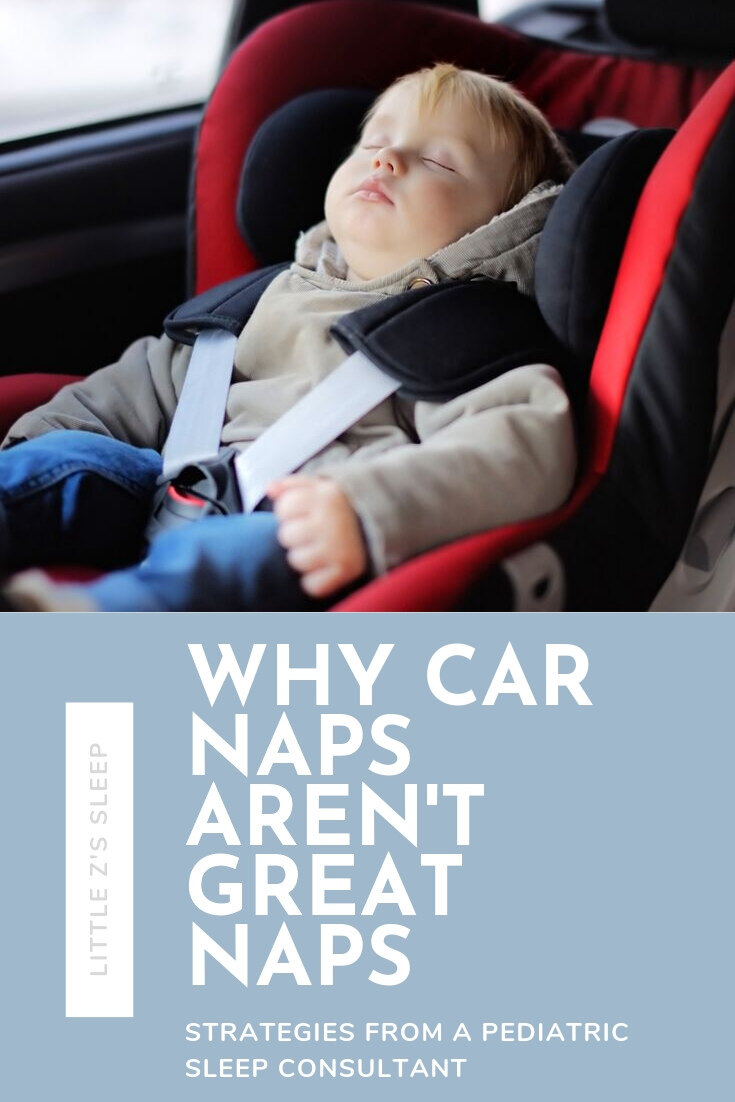
Let’s start by asking yourself a question:
When’s the last time you slept on a plane or in a car and woke up feeling totally refreshed and restored?
Never? Maybe you felt even more exhausted post-“nap”?
Exactly. This same groggy feeling of sleep is exactly what’s going on with your kiddo when he naps in the car.
Car seats and strollers are easy (and convenient) modes of napping for busy moms. Your daughter might fall asleep easily in either one of these on-the-go options, but she isn’t really getting the best quality of rest.*
If you have a newborn (three months and under) he can sometimes be smoothly transferred from the car to the crib. Once he hits four – five months he’ll lose the ability to sleep everywhere. That’s why transferring your older child from car to crib is also not a great solution.
Even a few minutes of shut-eye for her is enough to keep her energized for hours on end. It’s amazing! If she does fall asleep in the car the best thing to do is keep on driving (if it’s in your schedule to do so). Giving them a full sleep cycle (30-45 minutes) is a better option than waking them up moments after falling asleep.
Personally I keep an arsenal of books, toys, snacks, and random play objects in my passenger seat. When my daughter shows signs of sleepiness I toss one back and keep her going.
Need some encouragement to make sure you’re home for naptime??
Beyond the safety concern over carseat naps* know that a better quality nap mean a better night.
If your child is enjoying all of their naps to the fullest during the day (that means, in crib, for an hour or more) they are much more likely to have a great night.
Unfortunately it’s common for parents to skip a child’s naps in hopes for a longer night sleep. That is just so not true. During a missed nap time, your little one’s adrenal glands secrete small amounts of cortisol, which can cause a stimulation. That, combined with over-tiredness, makes him much more likely to wake up during the night.
So then you’ve got a baby who didn’t nap that day, and didn’t sleep well at night. You’ve set yourself up for a rough 24 hours!
On the other hand, if your child is at home resting in his bed for a nap at the scheduled time, his brain produces melatonin, which helps him get to sleep and stay asleep later on that evening.
As that sleep rhythm becomes consistent, sleep will come more naturally and easily and you’ll have a child who takes longer naps and has an easier time sleeping through the night.
How does that sound?
Sweet (crib-napping) Dreams ya’ll!
Your Pediatric Sleep Consultant

$10 OFF
We're here to help you get started!
Use code "SLEEPTONIGHT"
in the next 24 hours
to save $10 on any Sleep Program!